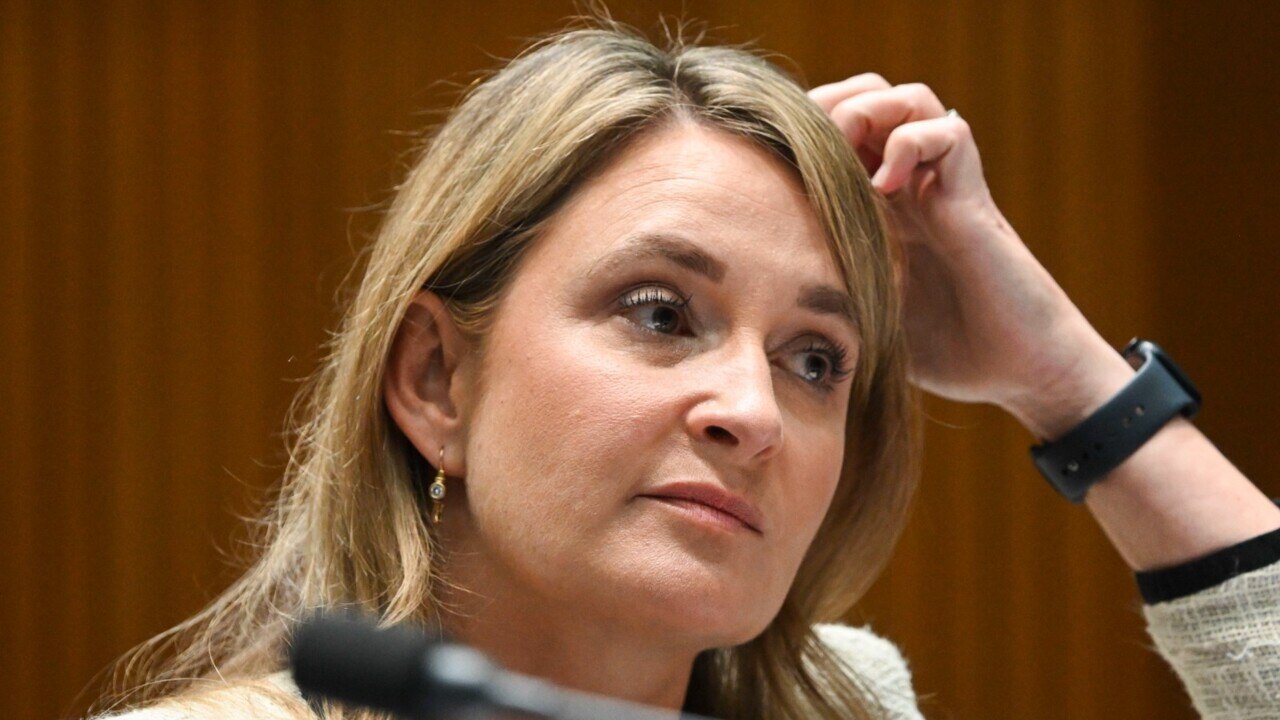Optus CEO’s departure a disaster for parent Singtel as it looks for exit strategy
The exit of Kelly Bayer Rosmarin from Optus will leave its Singapore owners in a quandary about what to do with the nation’s No.2 telco, which had been mooted for sale.

Business
Don't miss out on the headlines from Business. Followed categories will be added to My News.
It didn’t have to be like this for Kelly Bayer Rosmarin.
The outgoing Optus chief executive is sharp as a tack and widely liked by her team.
But on Friday, Optus’s owner Singtel told her that her time was up. It’s a devastating blow for the ambitious 46-year old and poses a significant problem for the Singapore-based parent company that has been secretly exploring potential sale options for the No. 2 carrier, according to one source with knowledge of the matter.
Optus could be worth north of $17bn with stable management in place and Ms Bayer Rosmarin had seemed just that.
While last year’s cyber attack – considered among the worst in Australia – was a disaster for Optus and shone a light on its lack of crisis communications experience, the view from above was that lessons had been learned.
SingTel has never run a formal sales process but in the last 12 months it is understood to have let the likes of Blackstone, Brookfield and the nation’s biggest superannuation firms know that it is very open to offers for all or parts of its Australian business and has considered an initial public offering.
The company could also be attractive to private equity because of the potential to monetise its infrastructure assets. Bigger rival Telstra sold a 49 per cent stake in its mobile towers in 2021 for $2.8bn, reflecting a massive EV/EBITDA multiple of 28 times.
But the total network shutdown two weeks ago and a calamitously bad public response has made the exit strategy that much more difficult.
The Optus outage left nearly half the population without phones or internet for 12 hours, causing train stoppages, daycare shutdowns, raising fears of another major hacking event, and showing the nation how vulnerable it is when communications systems stop working.
Under an unnecessarily bruising Senate inquiry last Friday, Optus director of networks Lambo Kanagaratnam admitted they “didn’t have a plan in place for that specific scale of outage”, nor could Ms Bayer Rosmarin clearly explain why it didn’t hold a press conference at all on the day of the outage or even just provide hourly updates.
And so despite it being the worst kept secret that Singapore wants out, Singtel Group CEO Yuen Kuan Moon had to release a media release describing Optus as “an integral part of our group’s business,” as part of its statement confirming Ms Bayer Rosmarin will leave the firm.
“We view the events in recent weeks very seriously,” said Mr Yuen. “We fully recognise the importance of Optus’s role in providing connectivity services to the community and the importance of network resiliency and security. That is a top priority in all markets where our companies operate in. I have every confidence our Optus team will exert all efforts to deliver for customers and regain their trust and confidence.”
The woman who should have been the perfect front for the sale of Optus will now not be there for that turnaround.
On paper, Bayer Rosmarin ticks a whole lot of boxes. The South African-born executive studied at Stanford College on a highly coveted scholarship, she rode the Silicon Valley tech boom and bust through the global financial crisis, she has strong technical skills, is well connected in the Sydney Jewish community, has increased Optus’s market share, and is credited for dramatically bolstering staff engagement.
But her response to the shutdown and to the hacking scandal last year was appalling.
In an interview with the Qantas magazine not long after her 2020 appointment to the role of CEO at Optus she credited Boston Consulting Group, where she worked in the early days of her career, as teaching her the importance of communication and the need to prioritise.
“When you’re leading a large organisation, you have to be crystal clear on what’s going to move the dial, what’s a priority and in what order we need to do things. That means knowing that certain things aren’t perfect and choosing not to do anything about them because there are more important priorities,” she said.
Unfortunately for her she misjudged her priorities on the day of the shut down – as she did during the hacking scandal – and failed to understand that her company provides a critical service: The public needed to know what was known even if the answer was not much.
Now, Optus chief financial officer Michael Venter, who followed her across from CBA, will temporarily fill the role of CEO while a new boss for the nation’s No.2 telco is found.
Ms Bayer Rosmarin should have been the perfect person to front a business with a secret ‘for sale’ sign at the door. Singtel paid $14bn for the company back in 2001 and it posted EBITDA of $2.1bn last year, up 4.5 per cent from the previous year, so based on the current comparable multiple for Telstra, it could be worth in the order of $17bn.
But now politicians will be keeping the closest of watch on what happens next with the company that services about 40 per cent of the nation. And that certainly puts a cap on its price.
Originally published as Optus CEO’s departure a disaster for parent Singtel as it looks for exit strategy





